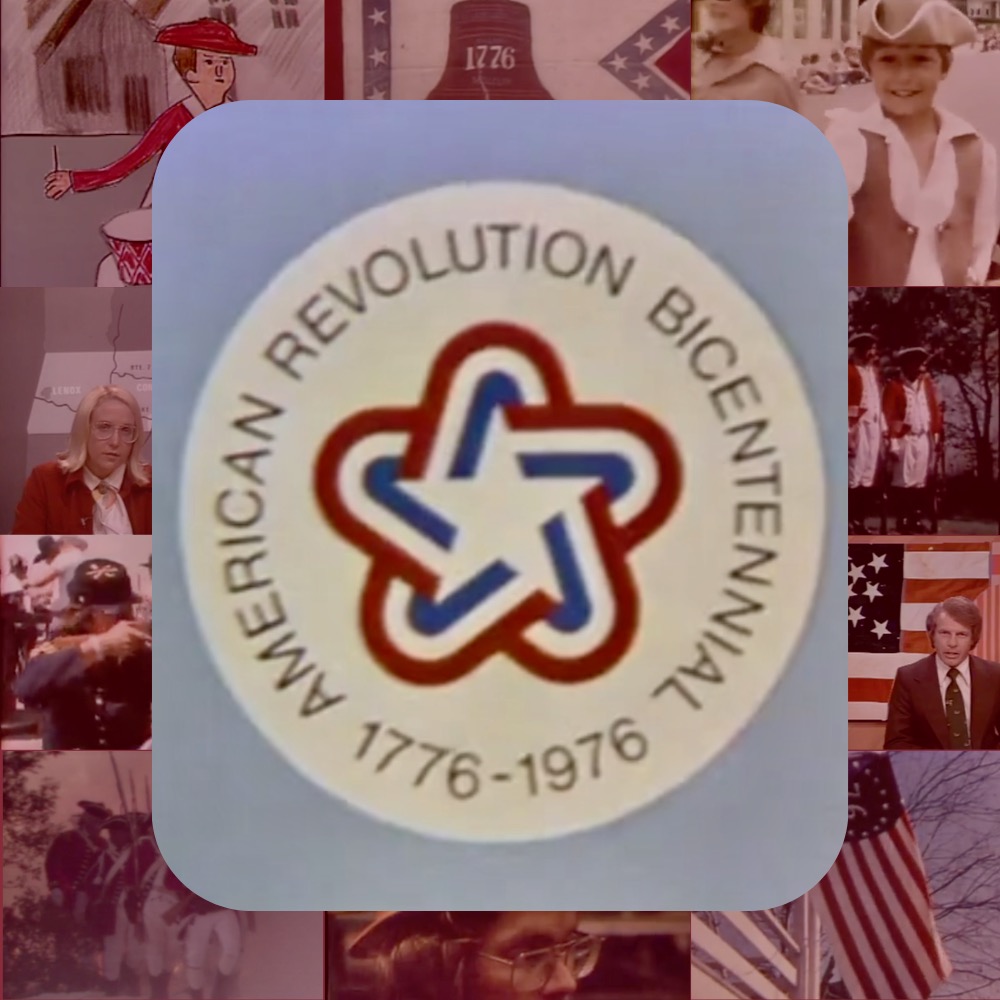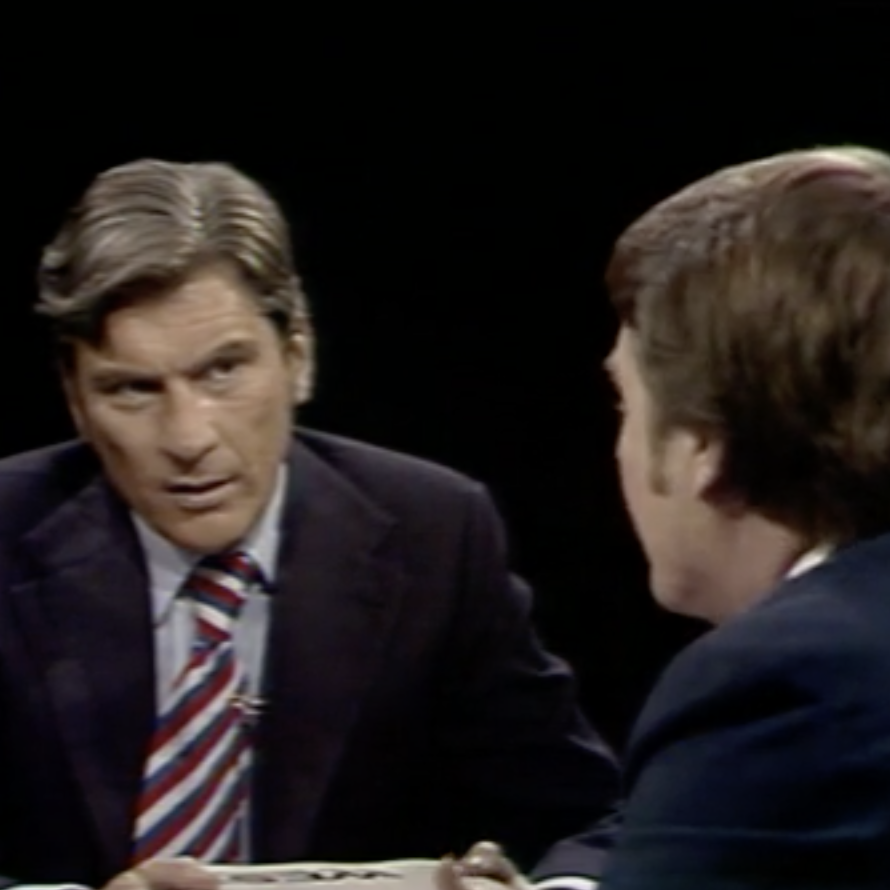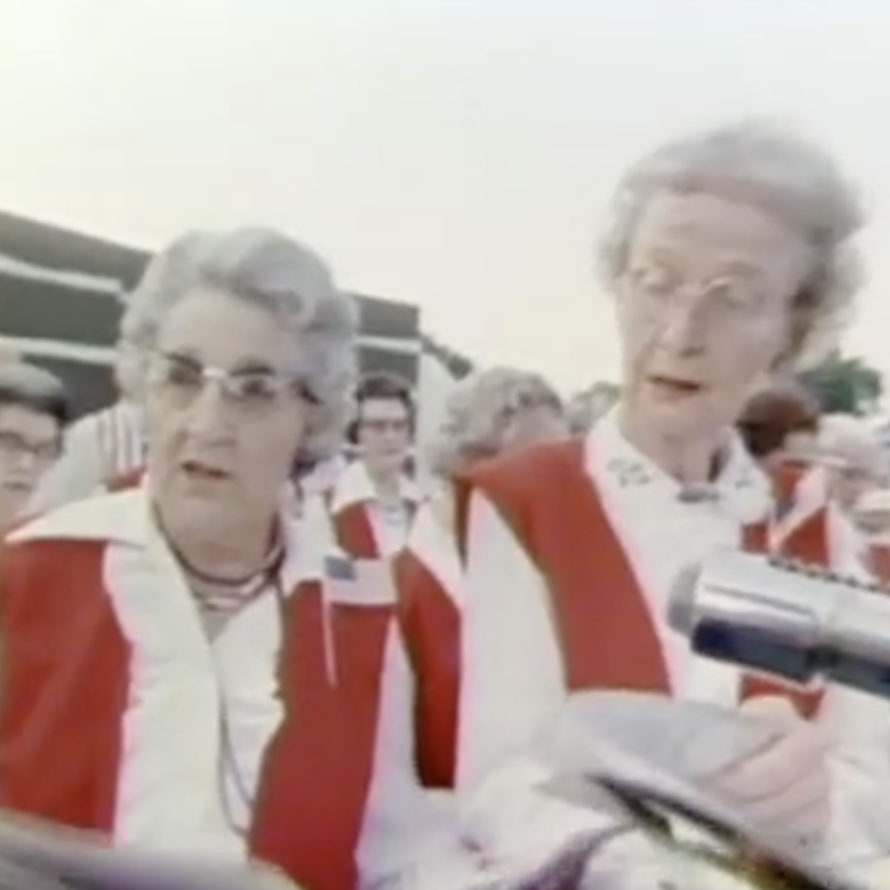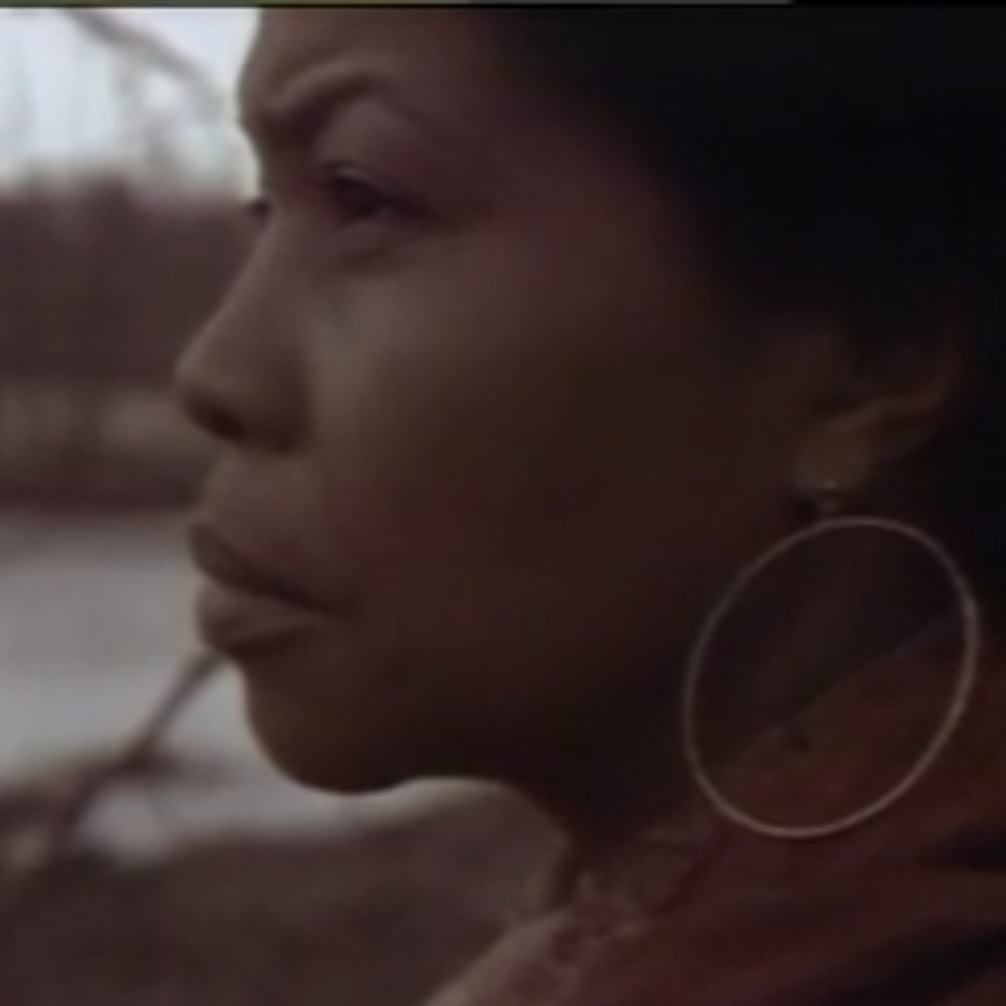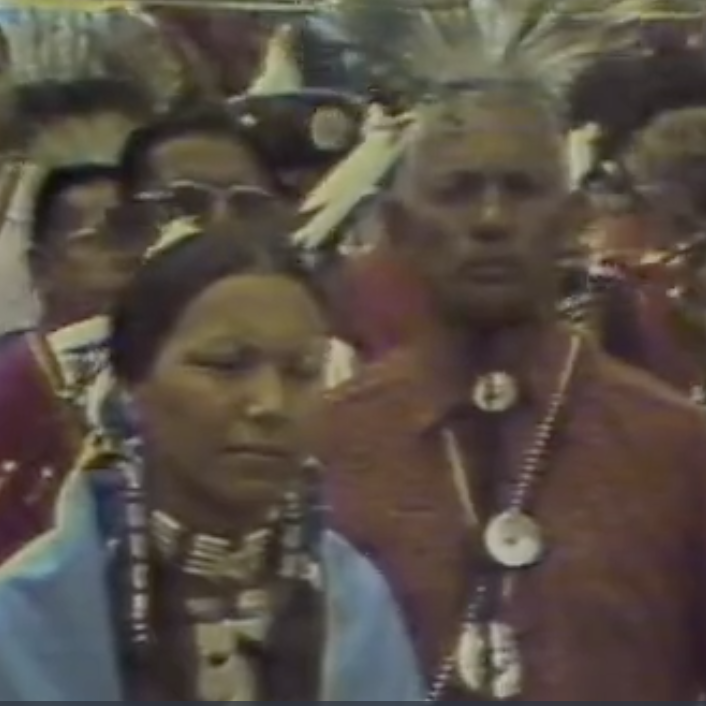The Bicentennial Collection
Other Resources
- The 1976 Bicentennial of American Independence
- The U.S. Bicentennial, 1976
- Public Media Making History at 250
- America 250
- AEI Archive: Distinguished Lecture Series on the Bicentennial of the United States
- The I-80 Sculpture Project
- Recognition of Black History Month
- Celebrating American Women During the Bicentennial
Collection Summary
In 2026, the United States will celebrate the 250th anniversary of the signing of the Declaration of Independence. As America’s semiquincentennial approaches, this collection looks back at public media programming produced fifty years ago to commemorate the nation's bicentennial in 1976.
During the bicentennial, public radio and television stations broadcast parades, revolutionary war reenactments, choral and concert performances, speeches by political leaders, and lecture series on themes such as the history and future of democracy. One such lecture series was the American Enterprise Institute’s Distinguished Lecture Series on the Bicentennial, featuring prominent scholars expounding on the American revolution and its legacy. Many local stations also produced series on the history, people, and culture of their state or region. For example, North Carolina: A Self Portrait (1976), was a bicentennial project of WUNC radio in which North Carolinians spoke “about themselves, their state, their families, their interests, and each other.”
Local stations also produced news reports and documentaries on regional bicentennial activities and state projects. The Compass Weekly’s “The Tourists Are Coming” (WGBH, 1975) shows how historic Massachusetts towns, such as Lexington and Concord, prepared for an expected influx of visitors during the bicentennial year. In Nebraska, a bicentennial sculpture project drew criticism for failing to include works by Nebraska natives, and because many objected to the abstract designs of the commissioned sculptures. The story of the controversial project is told in The 500 Mile Sculpture Garden (Nebraska ETV Network, 1976).
Many bicentennial programs extolled the nation and its history; however, some adopted a more nuanced perspective. In 1976, rising inflation, high unemployment rates, the Watergate scandal, and U.S. defeat in Vietnam contributed to widespread pessimism about the nation’s future. These issues are addressed in Reflections on a Revolution (WNET, February 22, 1976), in which Bill Moyers considers the legacy of the American Revolution and its relevance, if any, for the U.S. in the 1970s. As part of its “Black Bicentennial” series, Black Journal (NET/WNET, 1968–1977) hosted a debate about whether African Americans should celebrate the bicentennial at all, given the history of slavery and persistence of racial inequality in the U.S.
Although progressives were often critical of official bicentennial celebrations, they also saw the 200th anniversary of the nation’s founding as an opportunity to advocate for change. On March 25, 1976, Wilma Scott Heide appeared on the talk show Woman (WNED, 1972–1977) to discuss the work of the Women’s Coalition for the Third Century, an organization she helped found. Inspired by 19th-century feminists such as Elizabeth Cady Stanton and Susan B. Anthony, who issued a “Declaration of Rights” on behalf of women during the nation’s centennial celebration in 1876, Heide’s coalition drafted a “Declaration of Interdependence” advocating for a renewed commitment to women’s rights and gender equality.
As we prepare to celebrate America’s 250th birthday, the programs in the Bicentennial Collection offer a glimpse of how Americans in 1976 commemorated the nation’s past and their hopes for the country’s future.
Collection Background
The Bicentennial Collection comprises radio and television programming from public broadcasting stations throughout the U.S. that aired in connection with the 200th anniversary of the adoption of the Declaration of Independence on July 4, 1976. Programming includes recordings of official bicentennial celebrations, documentaries about American history, lecture series on topics such as the history and future of democracy worldwide, and panel discussion programs in which participants debate the bicentennial’s significance. The collection was added to the AAPB in September 2025 to mark the occasion of America’s semiquincentennial in 2026.
